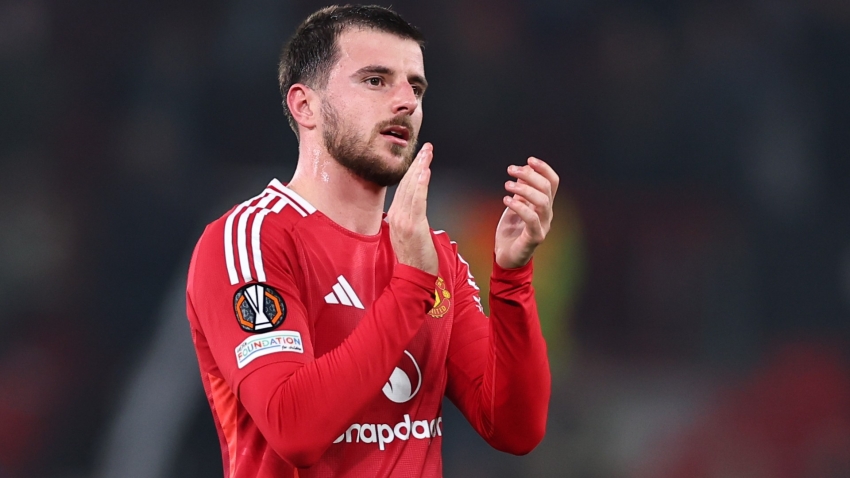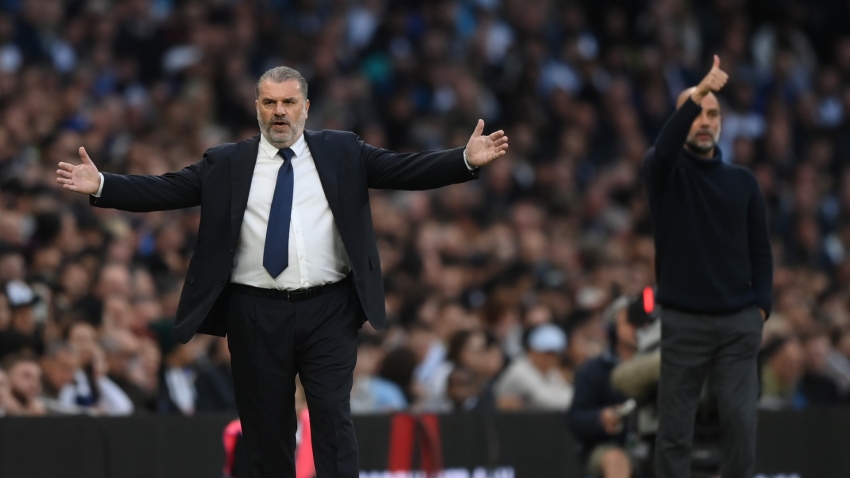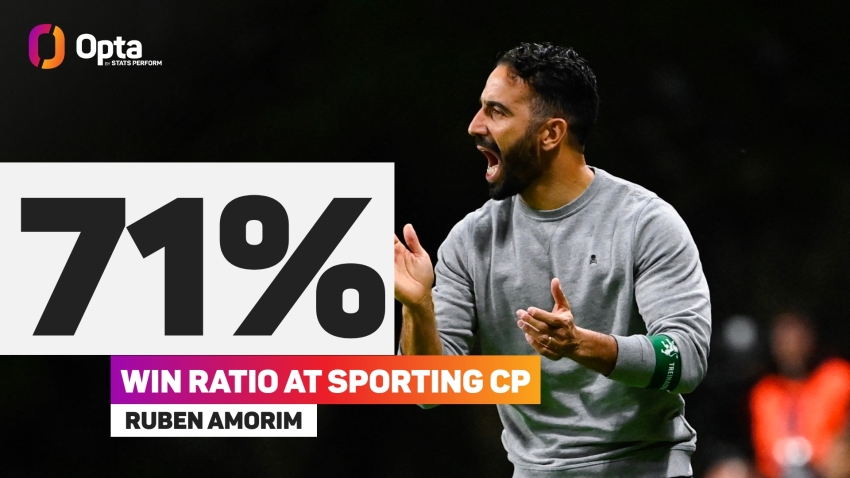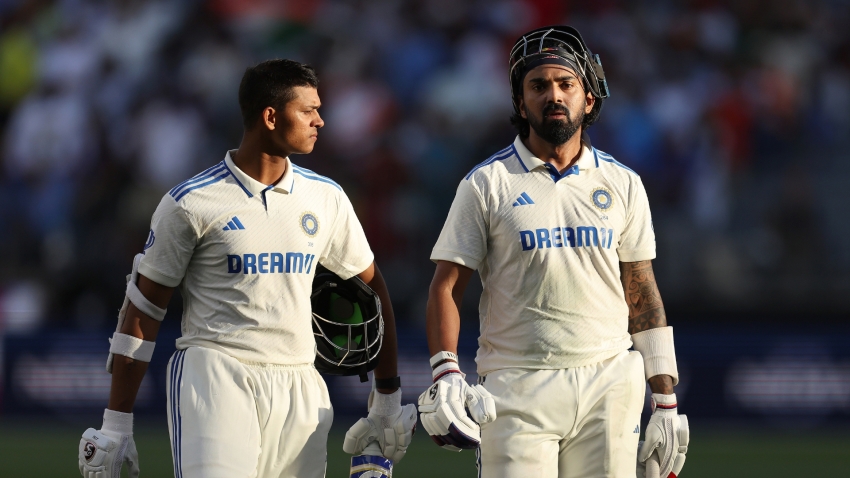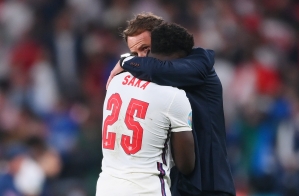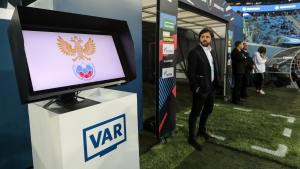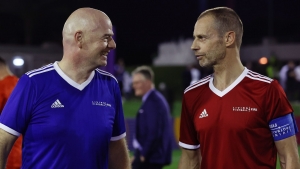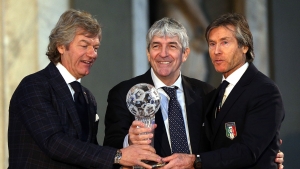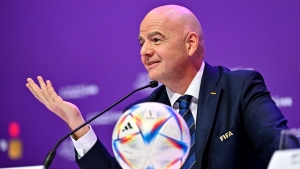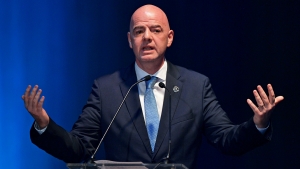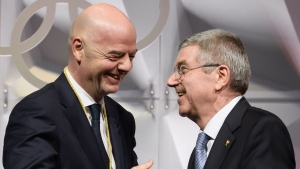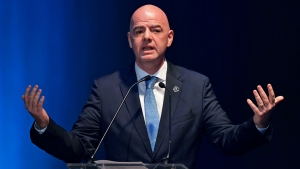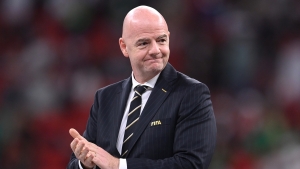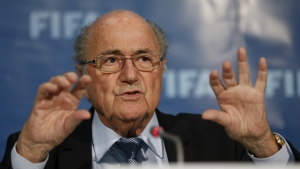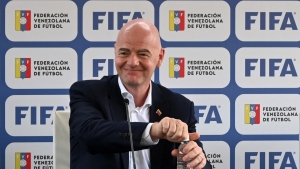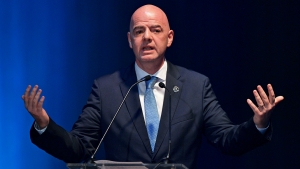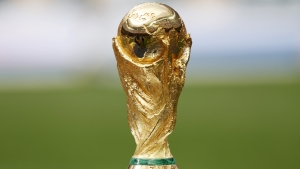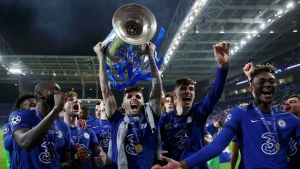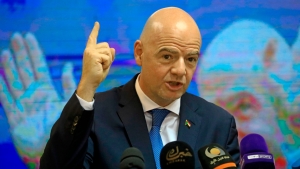Russian teams will be welcomed back into world football immediately once the invasion of Ukraine ends, FIFA president Gianni Infantino has declared.
Infantino said FIFA "would be there the first day to play football again", as he spoke at the world governing body's congress in Qatar, this year's World Cup host country.
Infantino, who in 2019 was awarded an Order of Friendship medal by Russian president Vladimir Putin, said he was "devastated" by the news coming out of Ukraine.
But he said it was right that there was Russian representation at the congress, insisting the country's national federation had not been suspended by FIFA.
The country's national and club teams have been blocked from playing in FIFA and UEFA competitions, including the World Cup, but Infantino said it was important to maintain dialogue with federation officials.
Speaking in a news conference following the congress session, Infantino said: "I'm very sad of course for what is happening, and I'm as devastated as everyone."
He added: "We had to suspend Russia and Russian teams. It's not an easy decision of course, because it's about people who love football.
"We had to take the decisions, and now we have to look forward and hope the hostilities can stop, and we can bring a little bit of peace.
"The decision on Russia has been taken. The Russian Football Union has appealed the decision to CAS [the Court of Arbitration for Sport] so we are waiting for the result of the CAS deliberations.
"We will see what comes next. I sincerely hope the conflict can end, and we would be there the first day to play football again, because that's what I think is needed in this country.
"Russia as a football union, like any other federation, has not been suspended as such by FIFA, it has been participating in this congress as well."
Russia hosted the 2018 World Cup, and now Qatar, whose qualification as suitable hosts has frequently been called into question, will stage the tournament in November and December of this year.
Asked whether Qatar would be awarded a World Cup based on what FIFA considers are now increasingly robust methods of deciding who should be hosts, Infantino initially distanced himself from the decision that was made in 2010, when Sepp Blatter was the governing body's president.
"When it comes to the Qatar World Cup, the decision has been taken now 12 years ago, when I was far away from FIFA happenings in these days," said Infantino, who was UEFA secretary general at the time.
"We've now put in place a different bidding process, which I think is also pretty unique, and I said in the past bulletproof. I hope it will continue to be bulletproof. It's open, it's transparent, it's professional and you know why you vote for somebody when you vote for somebody.
"This is what has happened for the men's World Cup in 2026 and for the women's World Cup in 2023.
"We still see even in these decisions there are political votes rather than factual-based votes. That's probably part of the game.
"When it comes to Qatar, the decision has been taken. We'll organise the best World Cup ever here in Qatar, and in any case we shouldn't go back. We should look forward, and we should look at what has happened.
"All the changes that have happened in this country in terms of workers' rights and human rights, and so on, would not have happened or certainly not at the same speed without the projectors of the World Cup being there."
Speaking about Qatar, whose records have been criticised by human rights organisations, Infantino said the tournament would "show to the world there are people living here, and you can come here and feel safe and be safe".









